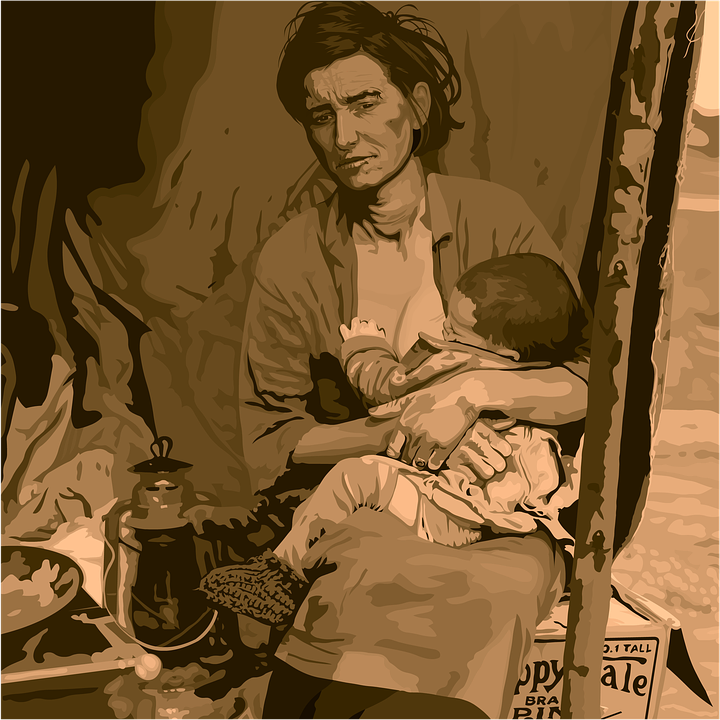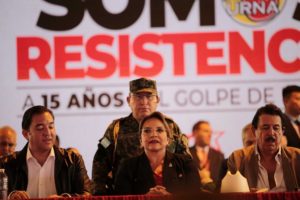Miriam is a woman who fled from Honduras with her two year old son. The statement she gave in front of a United States immigration court describing her experience being separated from her son went viral after a video was published that showed a group of actors and other celebrities reading it aloud. Miriam is invisible, but hundreds of thousands heard her in the voices of these people that have everything, who have our attention every day.
“My son was crying as they put him in the seat,” it said, “I did not even have a chance to comfort my son.”
People flee, they escape, they leave Honduras in desperation. Every Honduran family is familiar with that story, the story of not even having a place to live, the story of leaving under cover of darkness because in your neighborhood your fate has been determined or because you dared to seek justice
We have seen Miriam fleeing from state violence at protests, and from the more elaborate violence in the neighborhood where she lives in a state of permanent war, in a country where both the gangs and police attack you.
After the political crisis, with questionable elections marred by fraud, the number of deported migrants from the United States and Mexico doubled, and a wave of people organized a caravan in which to leave. The U.S. government reacted at the border with the same politics of terror with which it supports a government that has laid its foundations in the militarization and annihilation of the opposition. If it’s not sending more guns to Honduras, it’s ripping children out of the arms of their parents, who have neither a future nor a present in this invisible, unlivable country.
We found Miriam at the beginning of the year, with another name, another face, other kids and other problems. We found her in the Aguán Valley when we wrote a story about the violence in which landless campesinos live. Police and military there dismantled the settlement where Jenny lived. She had seen her husband leave with her youngest daughter because they could not survive in Honduras. After the eviction, Jenny fled with her other children and was detained at the border. She was not separated from them but was imprisoned with her son. This after she was forced to learn about the long and tortuous road to seeking refuge in a foreign country.
We also saw Miriam crying for her son who was murdered by the military during a protest in San Pedro Sula. In the profound sadness of a mother who lost three children in a neighborhood besieged by gangs and police, condemned to silence because to seek justice is dangerous. Because it can mean death.
And we also saw her in a neighborhood in her city of El Progreso, where police forcefully entered a home and took a family’s father and locked him up for four months, as if to teach him a lesson for protesting against the government. We saw her in the fear of leaving prison and returning to the streets of a country that isn’t safe, where you may be outwardly free but are really still incarcerated.
We have seen Miriam in the thousands of Hondurans that go to the US despite being treated as criminals there, even though they are the ones that sustain the country’s economy, and in the empty houses of those who dreamed of returning but never found in their country the conditions necessary to live with dignity.
Miriam cannot return to Honduras. It is not safe for her baby nor for her, as the statement said. To flee is a measure of survival. We know this because we have found Miriam in the thousands that leave, not only in the faces and voices of the famous people that manage to captivate our attention, but also in others who, like Miriam, are invisible.






